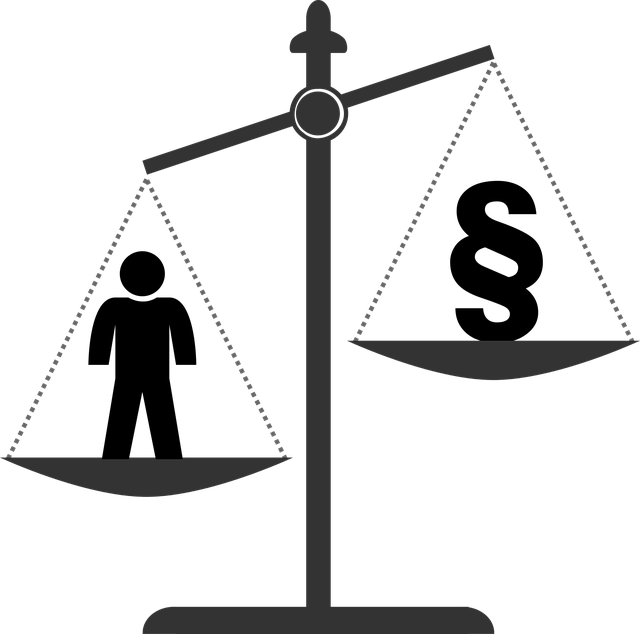Corporate Crime Investigations delve into complex cases of illegal business activities like financial fraud and environmental offenses, with a central focus on understanding how sentencing guidelines affect penalties. These guidelines provide structured approaches for judges to determine punishments, ensuring fairness, consistency, and proportionality based on offense severity, defendant history, and mitigating factors. By influencing plea bargains and trial outcomes, they shape corporate governance, deter misconduct, and rebuild public trust. Navigating these guidelines is crucial for organizations facing criminal charges, as they significantly impact legal strategies and final penalties.
Corporate Crime Investigations: Unraveling the Complex Web of Business Scandals
In today’s corporate landscape, ensuring ethical practices is paramount. This article provides a comprehensive guide to understanding corporate crime investigations and their impact on business accountability. We explore key aspects, including the role and effect of sentencing guidelines in criminal justice. Learn how these guidelines shape penalties for corporate offenses, highlighting critical considerations during investigations. Additionally, discover effective strategies to mitigate corporate criminal liability, offering insights into navigating this intricate legal domain.
- Understanding Corporate Crime Investigations: A Comprehensive Overview
- The Role of Sentencing Guidelines in Criminal Justice
- Impact of Sentencing Guidelines on Corporate Penalties
- Key Considerations When Investigating Corporate Crimes
- Effective Strategies for Mitigating Corporate Criminal Liability
Understanding Corporate Crime Investigations: A Comprehensive Overview

Corporate Crime Investigations delve into complex matters where businesses or their representatives engage in illegal activities. These investigations encompass a wide range of offenses, from financial fraud to environmental misconduct, and require meticulous strategies. Understanding how sentencing guidelines affect penalties is a pivotal aspect of these inquiries. Such guidelines provide a framework for judges to determine appropriate punishment, ensuring consistency and proportionality across similar cases. This, in turn, influences the severity of consequences faced by corporate and individual clients involved.
The process involves all stages of investigative and enforcement measures. It begins with gathering evidence through various means, including financial records, witness statements, and digital forensics. Subsequent steps include analyzing the findings, building a case, and ultimately, resolving it through plea bargains or jury trials. The outcome can significantly shape corporate governance practices, deter future misconduct, and restore public trust.
The Role of Sentencing Guidelines in Criminal Justice

Sentencing guidelines play a pivotal role in corporate crime investigations by providing a structured framework for judges to determine penalties. These guidelines are designed to ensure fairness, consistency, and proportionality in sentencing, taking into account the severity of the offense, the defendant’s prior record, and any aggravating or mitigating factors. For his clients facing corporate criminal charges, understanding these guidelines is crucial as they can significantly impact the potential outcomes of their cases.
By setting clear parameters for punishment, sentencing guidelines help to avoid arbitrary or inconsistent decisions. This is particularly important in complex corporate cases where the facts may be contested and the legal implications far-reaching. Prosecutors and defense attorneys alike use these guidelines to formulate strategies aimed at achieving extraordinary results for their clients—whether it’s avoiding indictment altogether or negotiating plea deals that minimize damage to businesses and reputations.
Impact of Sentencing Guidelines on Corporate Penalties

The impact of sentencing guidelines on corporate penalties is profound, shaping the legal landscape for both corporations and their leadership. These guidelines, designed to ensure consistency and fairness in criminal cases, play a pivotal role in deterring potential corporate offenders. By setting clear parameters for punishment, they send a strong message that corporate crime will not be tolerated. This deterrent effect is crucial in maintaining integrity within business practices, as it encourages companies to uphold ethical standards to avoid severe consequences.
Moreover, sentencing guidelines influence the strategies employed by legal teams and the outcomes for both corporate and individual clients. When faced with these guidelines, prosecutors and judges must carefully weigh factors such as the nature of the offense, its impact, and the company’s previous conduct, often resulting in unprecedented track records of achievement. Achieving extraordinary results, whether negotiating plea deals or securing robust prison sentences and fines, requires a deep understanding of these guidelines. This, in turn, can lead to transformative changes within organizations, fostering a culture of compliance and accountability.
Key Considerations When Investigating Corporate Crimes

When investigating corporate crimes, several key considerations come into play. Firstly, understanding the nature and scope of the alleged misconduct is crucial. These investigations often involve complex financial transactions, intricate corporate structures, and a web of relationships, necessitating thorough documentation and a systematic approach to unearth relevant evidence. The involvement of legal experts specializing in white-collar and economic crimes is often vital for navigating these intricacies.
Additionally, sentencing guidelines play a significant role in determining penalties for corporate offenders. These guidelines ensure fairness and consistency in justice administration. In the context of respective business practices, courts consider factors such as the severity of the crime, the level of planning involved, and any mitigatory or aggravating circumstances. This process helps to tailor sentences that not only punish but also serve as deterrents for similar offenses within philanthropic and political communities.
Effective Strategies for Mitigating Corporate Criminal Liability

Effective strategies for mitigating corporate criminal liability involve a multi-faceted approach that targets all stages of the investigative and enforcement process. One key aspect is understanding and adhering to sentencing guidelines, which play a pivotal role in determining penalties for corporate offenders. These guidelines ensure consistency and proportionality in punishment, acting as a deterrent for potential future misconduct.
Additionally, companies should implement robust internal controls and compliance programs to prevent white-collar and economic crimes from occurring. This includes regular training for employees on ethical conduct and legal obligations, thorough risk assessments, and the establishment of independent oversight mechanisms. By integrating these measures into their operations, corporations can effectively navigate the complexities of corporate law while minimizing the risk of criminal liability.
Corporate crime investigations are complex, requiring a multifaceted approach. By understanding the intricacies of sentencing guidelines and their impact on penalties, investigators can navigate these challenges more effectively. These guidelines play a pivotal role in ensuring fairness and consistency in corporate justice. Moreover, key considerations and strategies for mitigating liability underscore the importance of thorough, proactive, and compliant business practices to avoid such pitfalls. Ultimately, recognizing the influence of sentencing guidelines on penalties is essential for fostering ethical corporate behavior and upholding the integrity of the criminal justice system.






